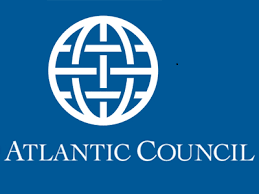While we are all adapting to fight corona, criminals are adjusting too.
More and more criminals are exploiting the pandemic. They threaten the security and health of citizens. They are taking advantage of the sick and the scared by selling counterfeit cures, disinfectants, medical masks.
We are seeing corona-related fraud, cybercrime and a worrying rise in online child sexual exploitation.
These crimes know no borders. We can only fight them together. Today, at a virtual event organised by the Atlantic Council, a Washington based think-tank, I discuss our very real EU measures against cybercrime.
Jointly in Europe, police forces are fighting these crimes 24 hours a day, 7 days a week. Just yesterday, after a Europol tip-off, authorities in Singapore arrested a man suspected of selling a European company 6.6 million euro worth of non-existent facemasks and hand gel.
Recently, Europol joined a global clampdown on corona-criminals, helping to seize more than four million units of sham medication, breaking-up 37 organised crime groups, making 121 arrests and taking down thousands of criminal websites and links.
But criminals started to move online even before. We already have policies to deal with digital crimes, and we are developing new ones.
We are improving cooperation between national police forces. By making it easier to exchange information between law enforcement agencies, we are making it more difficult for criminals to hide.
We have proposed new rules to improve cross-border access to electronic evidence, which is essential to solve 85% of the criminal investigations today.
If criminals move online, that is where they leave traces and police find leads. If criminals update their methods, our police forces must keep up by upgrading their tools and technology.
We want to make it easier for Europol to exchange data with companies. We want to make it easier for banks to tackle financial crimes and internet companies to fight online child sexual exploitation. We cannot do this effectively, without involving key online companies.
I will come forward with an EU strategy to fight child sexual abuse.
I am looking at our partners – including the U.S. – to see how they are fighting this horrible crime. I very much admire the work of the National Center for Missing & Exploited Children (NCMEC) in the U.S. I am considering the possibilities for a similar centre in Europe to coordinate the prevention and investigation of child abuse and assistance to victims.
In our response to corona-crime we must look beyond the internet. And we need to look beyond next week and next month.
While our economies suffer, organised crime prospers, with illegal proceeds of about 110 billion euro per year in Europe alone. Only 2% of these assets are frozen and 1% confiscated.
It’s money that could better be used these days, when we have to pay for medical staff, equipment and medicine, but also to help those who have lost their jobs and for a fair and green economic recovery.
Crime should never pay, but criminals should pay for their crimes. That’s why I will explore if and how we can improve freezing and recovering of criminal assets.
But one of the best prevention policies against crime will be a speedy economic recovery, which is socially fair and sustainably green. That’s why support for businesses and jobs is central to our corona-response.
Details
- Publication date
- 7 April 2020
- Author
- Directorate-General for Communication

